Latest News
Poland and Romania urge restraint in Middle East, warn of spillover risks for Europe and Ukraine
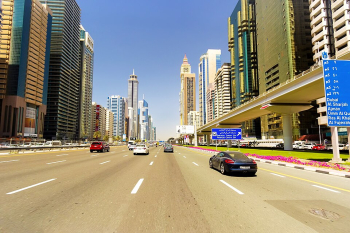 Poland and Romania urge restraint in Middle East, warn of spillover risks for Europe and Ukraine
Poland and Romania urge restraint in Middle East, warn of spillover risks for Europe and Ukraine
Dutch PM Rob Jetten puts migration, Iran and nuclear security at top of EU agenda in Brussels debut
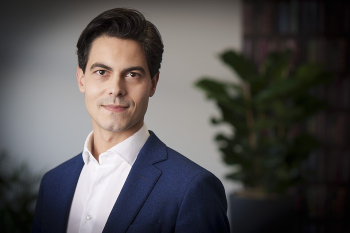 Dutch PM Rob Jetten puts migration, Iran and nuclear security at top of EU agenda in Brussels debut
Dutch PM Rob Jetten puts migration, Iran and nuclear security at top of EU agenda in Brussels debut
Belgium raises financial proof requirement for non-EU student visas to over €1,000 a month
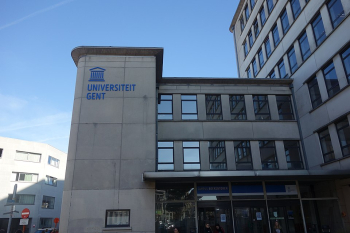 Belgium raises financial proof requirement for non-EU student visas to over €1,000 a month
Belgium raises financial proof requirement for non-EU student visas to over €1,000 a month
Over 10 million Ukrainians require humanitarian aid as UN warns of harsh winter and ongoing displacement
 Over 10 million Ukrainians require humanitarian aid as UN warns of harsh winter and ongoing displacement
Over 10 million Ukrainians require humanitarian aid as UN warns of harsh winter and ongoing displacement
Address by President von der Leyen at the European Employment and Social Rights Forum
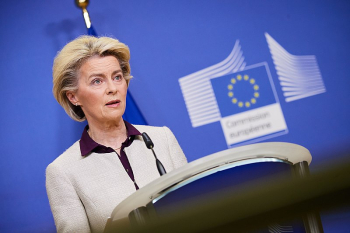 Address by President von der Leyen at the European Employment and Social Rights Forum
Address by President von der Leyen at the European Employment and Social Rights Forum
Belgium backs France’s expanded nuclear deterrence plan as Macron seeks stronger European defence
 Belgium backs France’s expanded nuclear deterrence plan as Macron seeks stronger European defence
Belgium backs France’s expanded nuclear deterrence plan as Macron seeks stronger European defence
EU gender employment gap in 2024: why women still lag behind at work
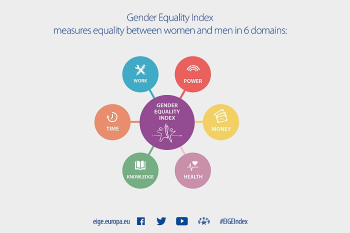 EU gender employment gap in 2024: why women still lag behind at work
EU gender employment gap in 2024: why women still lag behind at work
Press freedom in Europe under fire: new report warns of rising attacks, jailings and political pressure on journalists
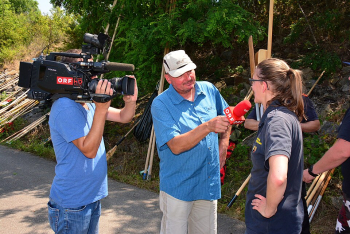 Press freedom in Europe under fire: new report warns of rising attacks, jailings and political pressure on journalists
Press freedom in Europe under fire: new report warns of rising attacks, jailings and political pressure on journalists
Women now hold over a third of EU managerial roles, but gaps remain
 Women now hold over a third of EU managerial roles, but gaps remain
Women now hold over a third of EU managerial roles, but gaps remain
EU approves €266.8 million payment to Slovenia under NextGenerationEU recovery plan
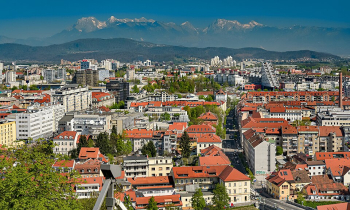 EU approves €266.8 million payment to Slovenia under NextGenerationEU recovery plan
EU approves €266.8 million payment to Slovenia under NextGenerationEU recovery plan
Must Read
-
 Zurich introduces Eruv, creating a Sabbath-friendly public zone for Jewish life
Zurich has quietly drawn a new kind of line across the city — one that cannot be seen at first glance, yet carries deep religious and social meaning. Spanning severalRead More...
Zurich introduces Eruv, creating a Sabbath-friendly public zone for Jewish life
Zurich has quietly drawn a new kind of line across the city — one that cannot be seen at first glance, yet carries deep religious and social meaning. Spanning severalRead More... -
 Zurab Musinyan: “Let my case lie at door of Russian special services combating international terrorism…”
Specialized Oil-Loading Seaport Vitino captured by Russian security officials through hostage taking keeps on being a subject of carve-up and litigations by Russian and international companies....Read More...
Zurab Musinyan: “Let my case lie at door of Russian special services combating international terrorism…”
Specialized Oil-Loading Seaport Vitino captured by Russian security officials through hostage taking keeps on being a subject of carve-up and litigations by Russian and international companies....Read More... -
 Young Europeans losing faith in democracy
Recent findings from a comprehensive survey conducted by the YouGov institute for the Tui Foundation reveal a concerning trend among Europe’s youth: a growingRead More...
Young Europeans losing faith in democracy
Recent findings from a comprehensive survey conducted by the YouGov institute for the Tui Foundation reveal a concerning trend among Europe’s youth: a growingRead More... -
 World Refugee Day: Joint Statement by the European Commission and the High Representative
No country, no region in the world has been spared from the impact of COVID-19. The virus is exacerbating existing inequalities and has a disproportionate effect on refugees,Read More...
World Refugee Day: Joint Statement by the European Commission and the High Representative
No country, no region in the world has been spared from the impact of COVID-19. The virus is exacerbating existing inequalities and has a disproportionate effect on refugees,Read More... -
 World peace under strain — yet some countries still shine
As a storm of conflicts, rising militarisation and geopolitical fragmentation rattles the globe, the annual Global Peace Index 2025 paints a soberingRead More...
World peace under strain — yet some countries still shine
As a storm of conflicts, rising militarisation and geopolitical fragmentation rattles the globe, the annual Global Peace Index 2025 paints a soberingRead More... -
 Women still a minority among Flemish professors despite gains elsewhere
Women account for just one in three professors and visiting professors at Flemish universities, according to new figures released on Tuesday by Statistiek Vlaanderen.Read More...
Women still a minority among Flemish professors despite gains elsewhere
Women account for just one in three professors and visiting professors at Flemish universities, according to new figures released on Tuesday by Statistiek Vlaanderen.Read More... -
 Women now hold over a third of EU managerial roles, but gaps remain
In 2024, women occupied 35.2% of managerial positions across the European Union, marking a steady rise from 31.8% a decade earlier, according to the latest EU laborRead More...
Women now hold over a third of EU managerial roles, but gaps remain
In 2024, women occupied 35.2% of managerial positions across the European Union, marking a steady rise from 31.8% a decade earlier, according to the latest EU laborRead More...
Latest News
Poland and Romania urge restraint in Middle East, warn of spillover risks for Europe and Ukraine
 Poland and Romania urge restraint in Middle East, warn of spillover risks for Europe and Ukraine
Poland and Romania urge restraint in Middle East, warn of spillover risks for Europe and Ukraine
Dutch PM Rob Jetten puts migration, Iran and nuclear security at top of EU agenda in Brussels debut
 Dutch PM Rob Jetten puts migration, Iran and nuclear security at top of EU agenda in Brussels debut
Dutch PM Rob Jetten puts migration, Iran and nuclear security at top of EU agenda in Brussels debut
Belgium raises financial proof requirement for non-EU student visas to over €1,000 a month
 Belgium raises financial proof requirement for non-EU student visas to over €1,000 a month
Belgium raises financial proof requirement for non-EU student visas to over €1,000 a month
Over 10 million Ukrainians require humanitarian aid as UN warns of harsh winter and ongoing displacement
 Over 10 million Ukrainians require humanitarian aid as UN warns of harsh winter and ongoing displacement
Over 10 million Ukrainians require humanitarian aid as UN warns of harsh winter and ongoing displacement
Address by President von der Leyen at the European Employment and Social Rights Forum
 Address by President von der Leyen at the European Employment and Social Rights Forum
Address by President von der Leyen at the European Employment and Social Rights Forum
Belgium backs France’s expanded nuclear deterrence plan as Macron seeks stronger European defence
 Belgium backs France’s expanded nuclear deterrence plan as Macron seeks stronger European defence
Belgium backs France’s expanded nuclear deterrence plan as Macron seeks stronger European defence
EU gender employment gap in 2024: why women still lag behind at work
 EU gender employment gap in 2024: why women still lag behind at work
EU gender employment gap in 2024: why women still lag behind at work
Press freedom in Europe under fire: new report warns of rising attacks, jailings and political pressure on journalists
 Press freedom in Europe under fire: new report warns of rising attacks, jailings and political pressure on journalists
Press freedom in Europe under fire: new report warns of rising attacks, jailings and political pressure on journalists
Women now hold over a third of EU managerial roles, but gaps remain
 Women now hold over a third of EU managerial roles, but gaps remain
Women now hold over a third of EU managerial roles, but gaps remain
EU approves €266.8 million payment to Slovenia under NextGenerationEU recovery plan
 EU approves €266.8 million payment to Slovenia under NextGenerationEU recovery plan
EU approves €266.8 million payment to Slovenia under NextGenerationEU recovery plan
Must Read
-
 Zurich introduces Eruv, creating a Sabbath-friendly public zone for Jewish life
Zurich has quietly drawn a new kind of line across the city — one that cannot be seen at first glance, yet carries deep religious and social meaning. Spanning severalRead More...
Zurich introduces Eruv, creating a Sabbath-friendly public zone for Jewish life
Zurich has quietly drawn a new kind of line across the city — one that cannot be seen at first glance, yet carries deep religious and social meaning. Spanning severalRead More... -
 Zurab Musinyan: “Let my case lie at door of Russian special services combating international terrorism…”
Specialized Oil-Loading Seaport Vitino captured by Russian security officials through hostage taking keeps on being a subject of carve-up and litigations by Russian and international companies....Read More...
Zurab Musinyan: “Let my case lie at door of Russian special services combating international terrorism…”
Specialized Oil-Loading Seaport Vitino captured by Russian security officials through hostage taking keeps on being a subject of carve-up and litigations by Russian and international companies....Read More... -
 Young Europeans losing faith in democracy
Recent findings from a comprehensive survey conducted by the YouGov institute for the Tui Foundation reveal a concerning trend among Europe’s youth: a growingRead More...
Young Europeans losing faith in democracy
Recent findings from a comprehensive survey conducted by the YouGov institute for the Tui Foundation reveal a concerning trend among Europe’s youth: a growingRead More... -
 World Refugee Day: Joint Statement by the European Commission and the High Representative
No country, no region in the world has been spared from the impact of COVID-19. The virus is exacerbating existing inequalities and has a disproportionate effect on refugees,Read More...
World Refugee Day: Joint Statement by the European Commission and the High Representative
No country, no region in the world has been spared from the impact of COVID-19. The virus is exacerbating existing inequalities and has a disproportionate effect on refugees,Read More... -
 World peace under strain — yet some countries still shine
As a storm of conflicts, rising militarisation and geopolitical fragmentation rattles the globe, the annual Global Peace Index 2025 paints a soberingRead More...
World peace under strain — yet some countries still shine
As a storm of conflicts, rising militarisation and geopolitical fragmentation rattles the globe, the annual Global Peace Index 2025 paints a soberingRead More... -
 Women still a minority among Flemish professors despite gains elsewhere
Women account for just one in three professors and visiting professors at Flemish universities, according to new figures released on Tuesday by Statistiek Vlaanderen.Read More...
Women still a minority among Flemish professors despite gains elsewhere
Women account for just one in three professors and visiting professors at Flemish universities, according to new figures released on Tuesday by Statistiek Vlaanderen.Read More... -
 Women now hold over a third of EU managerial roles, but gaps remain
In 2024, women occupied 35.2% of managerial positions across the European Union, marking a steady rise from 31.8% a decade earlier, according to the latest EU laborRead More...
Women now hold over a third of EU managerial roles, but gaps remain
In 2024, women occupied 35.2% of managerial positions across the European Union, marking a steady rise from 31.8% a decade earlier, according to the latest EU laborRead More...
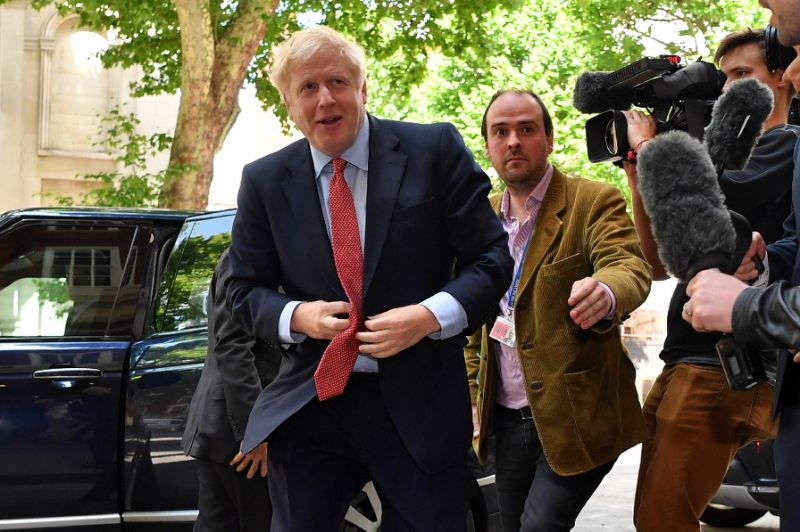
The EU's leaders Friday fired a Brexit warning to whoever wins the battle to become the next British prime minister, insisting the existing divorce deal will not
Read more: EU leaders warn next British PM: no Brexit renegotiation
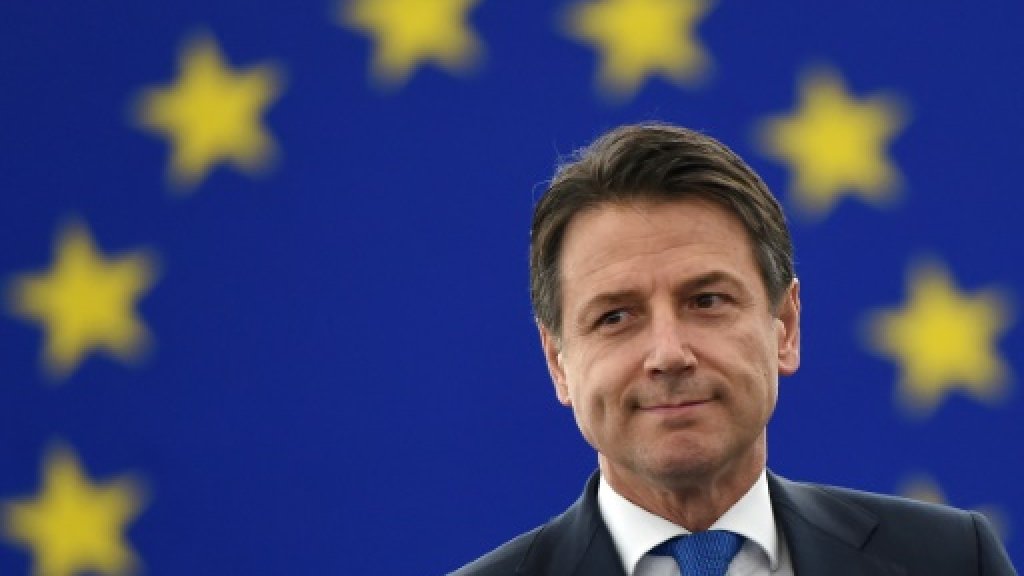
Italy's Prime Minister Giuseppe Conte has pledged to abide by EU fiscal rules, while insisting his country's financial health is on the mend, despite its
Read more: Italy will play ball on deficit, PM assures Brussels
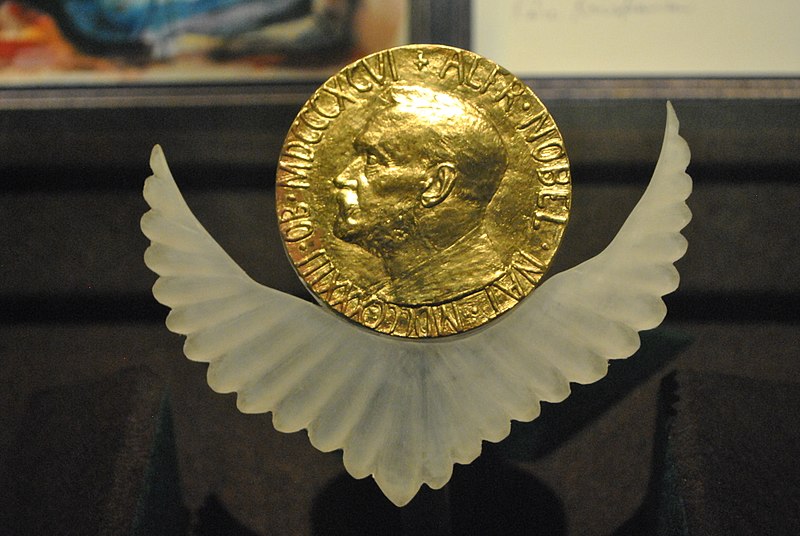
Myanmar's civilian leader Aung San Suu Kyi and Hungarian Prime Minister Viktor Orban both view migration as "one of the greatest challenges" currently
Read more: Myanmar, Hungary see migration as 'greatest challenge'
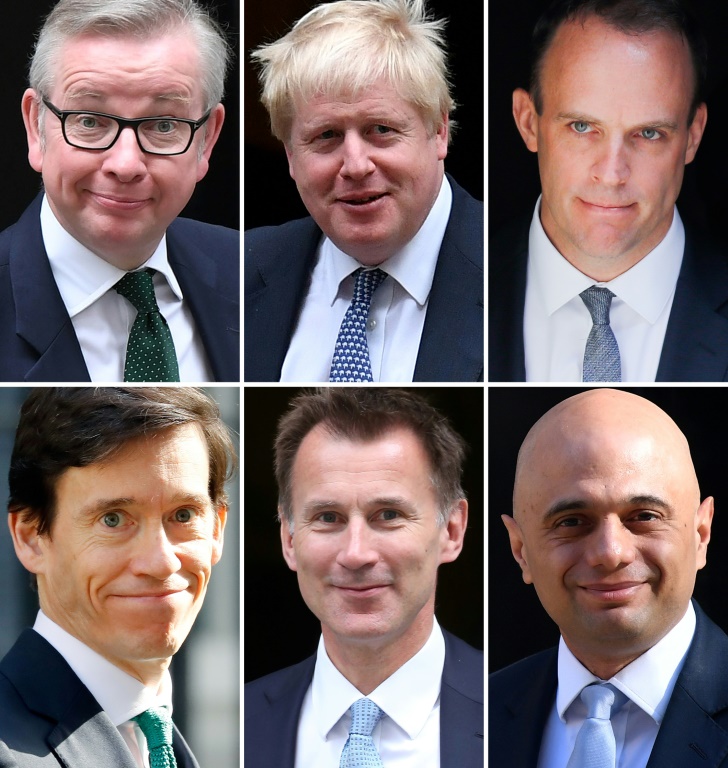
The 90-minute debate on Channel 4 featured the five remaining candidates and an empty podium for Johnson, the gaffe-prone former foreign secretary and
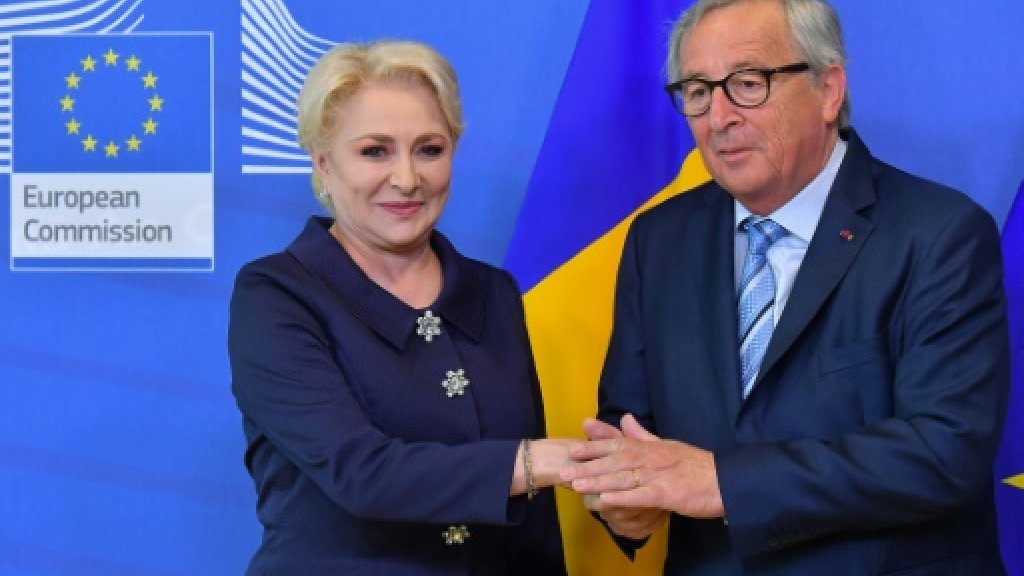
The European Commission on Tuesday welcomed Romania's pledge to renounce controversial judicial reforms that had triggered strong criticism and
Read more: EU praises Romanian U-turn on controversial reforms
